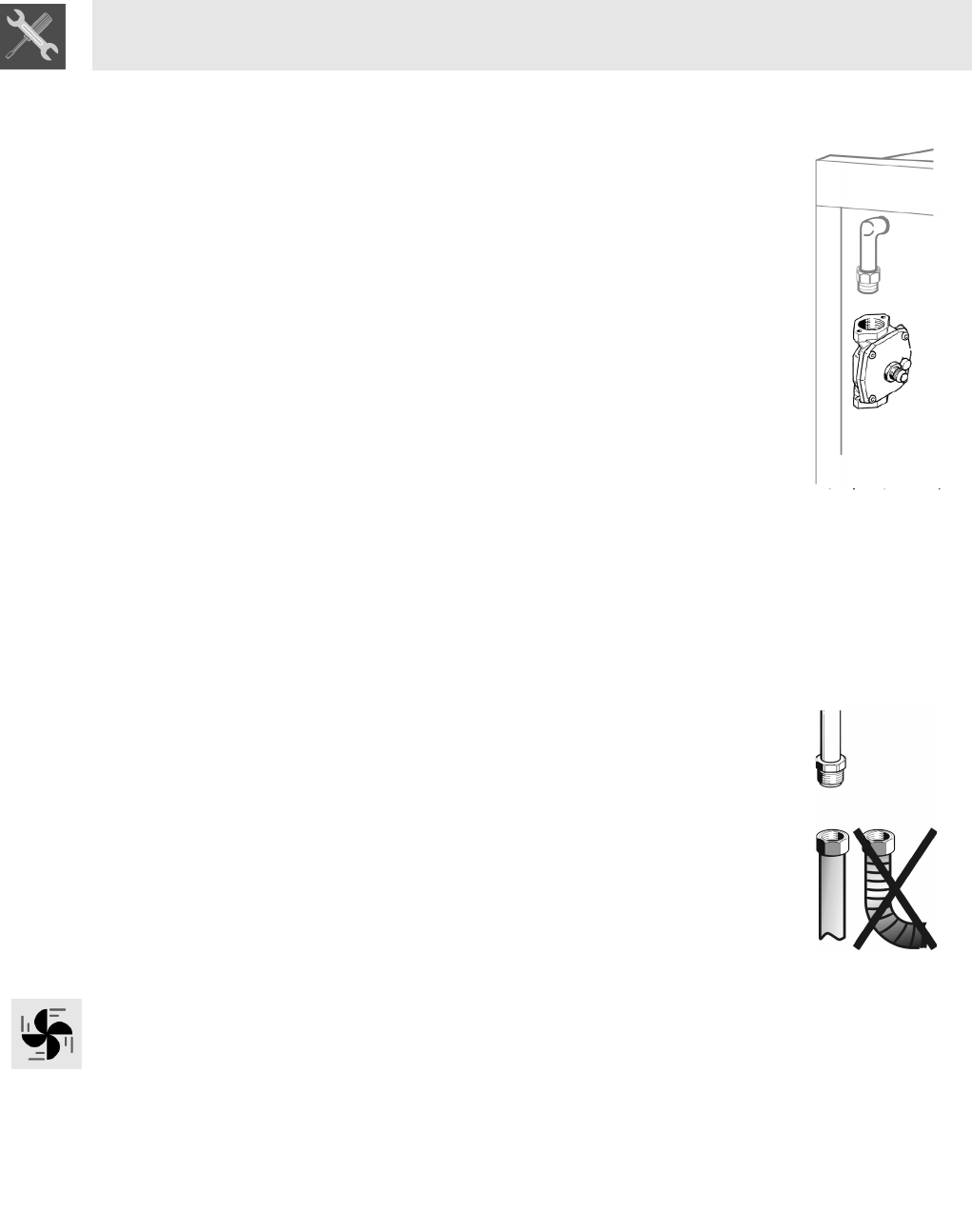
Instructions for the installer
21
15.2 Gas connection
This appliance is suitable for installation with Natural Gas or LPG (propane).
Refer to page 12 for the relevant burner pressure and appropriate injector sizes.
When the appliance is to be connected to Natural Gas then the pressure regulator
supplied must be fitted to the gas inlet. A test point (for checking the gas
pressure) is supplied either with the regulator or as a separate fitting in the case
of LPG (propane) appliances.
Connection of the appliance to the gas supply must be in accordance with the
requirements of AS5601. A ½” BSP connector at the inlet is recommended and
the gas supply line to the appliance must be of adequate length to allow sufficient
withdrawal of appliance for service or disconnection and be annealed copper
pipe.
The cooker must be installed with provision to allow the gas to be turned off and
disconnected for servicing and removal of the appliance as required from the gas
supply.
Before the cooker is operated make certain all relevant parts are placed in the
correct position.
When the installation is completed the installation connections of cooker will require to be leak tested,
the burner operating pressure and flame checked and adjusted.
Warranty service calls do not cover these adjustments!
To check the operating pressure of the appliance it is recommended at least 2 large size burners are
used. Ensure appliance is secured to wall when installation is completed.
N.G. The regulator supplied must be fitted to the ½ BSP thread at the rear of the appliance. An approved
manual shut-off valve must be installed. The N.G. regulator must be checked and adjusted to 1.0 kPa
after installation.
L.P.G. Can be connected to the inlet fitting directly. The pressure must be
checked to ensure it is operating at 2.75 kPa. A separate test point fitting must be
installed between the piping & the appliance for the pressure to be checked to
ensure it is operating at 2.75 kPa.
15.3 Room ventilation
Caution – This cooker may only be installed and operated in rooms permanently ventilated in
accordance with current regulations. For proper operation of a gas appliance it is essential for the air
necessary for combustion of the gas to be able to flow naturally into the room. Air must flow directly into
the room through openings in its outside walls.
This (these) opening (s) must have a free passage cross-section of at least 100 cm
2
, or 200 cm 2 for
appliances not equipped with gas safety device. These openings must be constructed so that they
cannot be obstructed indoors or outdoors, and should preferably be close to the floor on the side
opposite to the combustion gas discharge point. If it is not possible to make the openings in the room
where the cooker is installed, the necessary air may be taken from an adjoining room, proveded it is not
a bedroom or a room with fire risk.


















